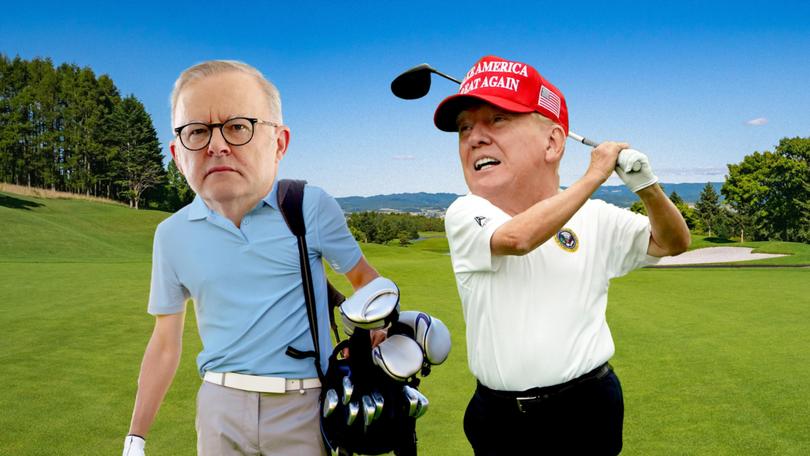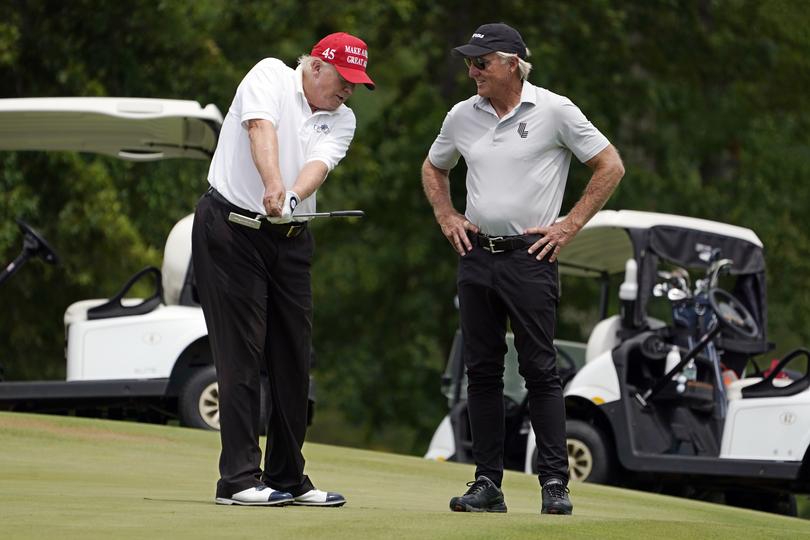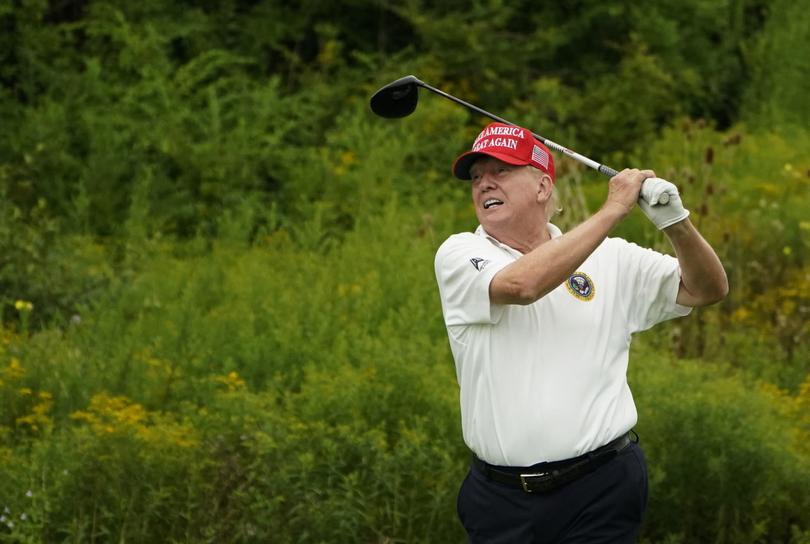MARK RILEY: Will Anthony Albanese’s old remarks about Donald Trump prove to be a handicap?

Anthony Albanese doesn’t play golf. He’s more of a tennis guy.
But he might like to learn.
History tells us the fairways are the best place to get a fair deal from Donald Trump.
Sign up to The Nightly's newsletters.
Get the first look at the digital newspaper, curated daily stories and breaking headlines delivered to your inbox.
By continuing you agree to our Terms and Privacy Policy.Australian golfing great Greg Norman famously came to the Turnbull government’s rescue in 2016 when it realised the day after Trump’s first election victory that no one in the ministry, diplomatic corps or bureaucracy had bothered to get the president-elect’s phone number.
Norman helpfully dug it out of his contacts, allowing Turnbull to be among the first leaders to speak with him after his victory was confirmed.
In 2018, Norman was again enlisted for eighteen holes of golf diplomacy with the president to put Australia’s case for a special exemption from Trump’s crippling steel and aluminium tariffs.
It worked.

Ambassador Joe Hockey played the biggest hand in that. He did it after playing nine holes with the president at his Trump National Golf Course in Virginia.
Unlike Turnbull’s administration, though, Albanese’s government has been preparing for the possibility of a Trump Redux.
It has been quietly building relationships with the Republican elite in Washington for more than a year.
Defence Minister Richard Marles might become Australia’s secret weapon in that. He plays golf off a handicap of four.
And he has already begun establishing ties with the incoming administration.
Marles met with Trump’s former secretary of state and one-time CIA director, Mike Pompeo, in Washington in August. Pompeo is now tipped to take another senior White House role.
Foreign Minister Penny Wong also met Pompeo in September at the United Nations in New York.
Both meetings were arranged by our Ambassador to Washington, Kevin Rudd, whose own future is now under something of a cloud.
Rudd made some excoriating observations about Trump during his first administration. He called him “nuts”, “barking mad” and “a traitor to the West”.
And Albanese has made some sharp reflections of his own. In 2017, he said Trump “scares the s..t out of me”.
Of course, they weren’t alone. Many of Trump’s former close advisers said much worse.
Albanese and Rudd are now furiously sweeping all that under history’s carpet as they congratulate the president-elect and vow to work constructively with him in the interests of both countries.
Albanese says Australia’s alliance with the US is bigger than any individual.
He is right.
And the evidence suggests that Trump believes that, too.
In contrast to all the apocalyptic warnings, Australia did well under the first Trump administration.
President Trump honoured the refugee resettlement deal struck with Barack Obama as a gesture of goodwill, despite describing it as “dumb” and his phone call about it with prime minister Malcolm Turnbull as “the worst by far” of any he’d had with world leaders.
The likelihood now is that Australia will do well again under Trump II.
At least, in bilateral terms.
The expectation is that Trump will honour the AUKUS deal and again grant us unofficial “special relationship” exemptions from his promised tariffs of 10 to 20 per cent.
But in a multilateral sense, the outlook is more troubling.

Trump’s promise to withdraw from the Paris Agreement on climate change and expectations that he will wind back Joe Biden’s Inflation Reduction Act will sideswipe international moves towards net zero emissions and throw the Albanese Government’s clean energy policies into turmoil.
And if Trump does pull back from the NATO alliance and cut heavily into America’s support for Ukraine, Vladimir Putin will inevitably get his way and present an even greater threat on Europe’s doorstep.
Trump said in his victory speech that he wants “peace not war”, which suggests he might press for a negotiated solution in the Middle East. But no one knows how that will work out.
And then there’s China.
Another orchestrated trade war with our largest trading partner, just as we’re recovering from the last one, would again smash our economy.
Treasury Secretary Steven Kennedy revealed this week that he’d already warned the cabinet that another Trump tariff assault would send inflation here higher for longer and flatten economic growth.
These are troubling possibilities for Anthony Albanese as he now prepares to run his own re-election campaign centred on the economy.
The US result, like that in Queensland, shows that voters are taking their anger out on incumbents for not doing enough on the cost of living.
It is a message Albanese must hear, or else risk being left out like a bloke who turns up to golf course with a tennis racquet.

